Transition Farm Walk visits carbon-negative arable unit
Farmers Weekly Transition Farmer Andy Bason provided an insight into his carbon-negative, Hampshire-based arable unit during a recent farm walk.
The Transition Farm Walk saw more than 80 visitors descend on 800ha Newhouse Farm, Alresford, to see how it captures 2,000t of carbon dioxide (CO2e) a year – some 439t more than it emits.
See also: Defra levels up payments in uplands after intense lobbying
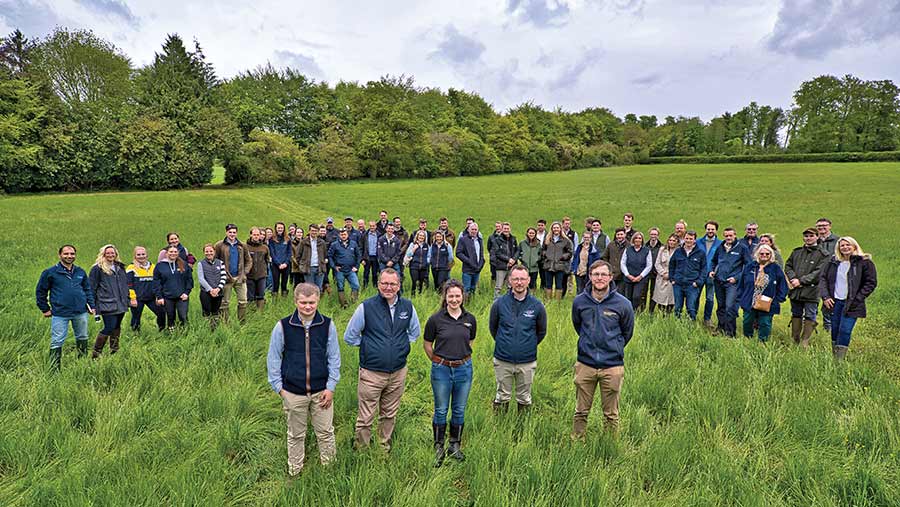
The Newhouse Farm team and farm walk visitors © Richard Stanton
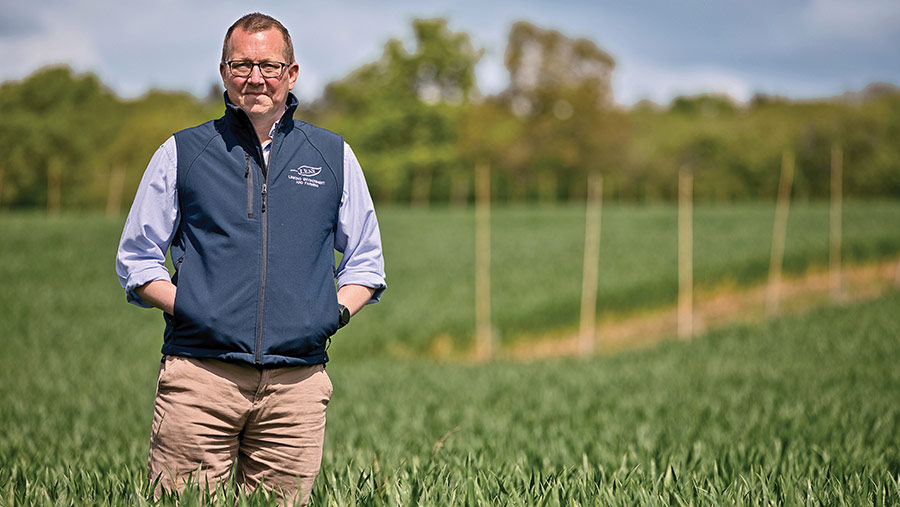
Andy Bason at Newhouse Farm © Richard Stanton
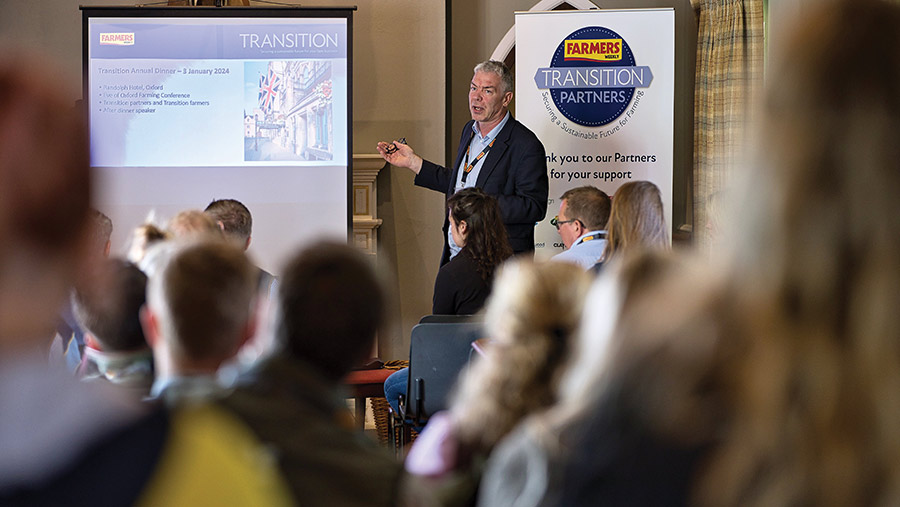
Farmers Weekly Transition project editor Johann Tasker kicked off the farm walk with an introduction © Richard Stanton
Visitors included local farmers and Farmers Weekly Transition partners.
They heard how the farm’s forestry, biomass boilers and switch to low-till cultivations have helped slash greenhouse gas emissions.
Average diesel usage has been reduced by 40% from 82 litres/ha to 50 litres/ha.
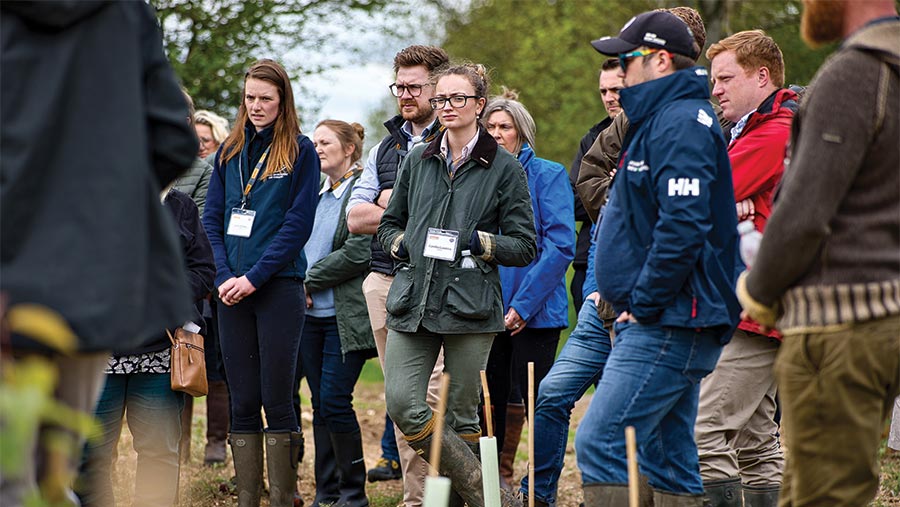
Farm walk visitors heard first-hand about Andy Bason’s Transition strategy © Richard Stanton
The farm is continuing to capture even more carbon, having planted 20,000 deciduous trees on 10ha of less productive farmland using a Forestry Commission English Woodland Creation Offer.
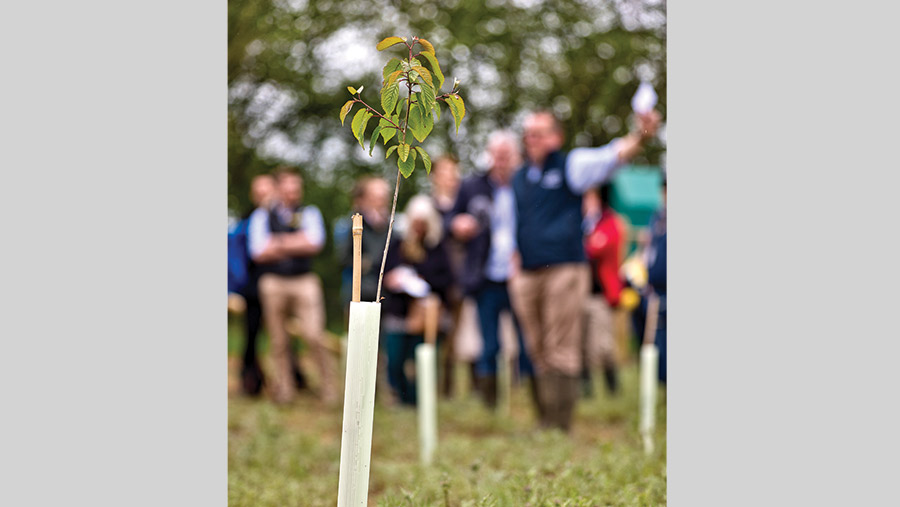
One of 20,000 trees planted last autumn and winter © Richard Stanton
Local farmer Rob Singleton wanted to know how much carbon the plantation could sequester in the future.
An estimate of 350t CO2e/ha was suggested by Alex MacKinnon of the Carbon Store.
Further trees have been planted as an agroforestry venture within an arable field.
About 400 pear, walnut and apple whips, planted in 4m-wide strips, run north-south, 30m apart through a winter wheat crop.
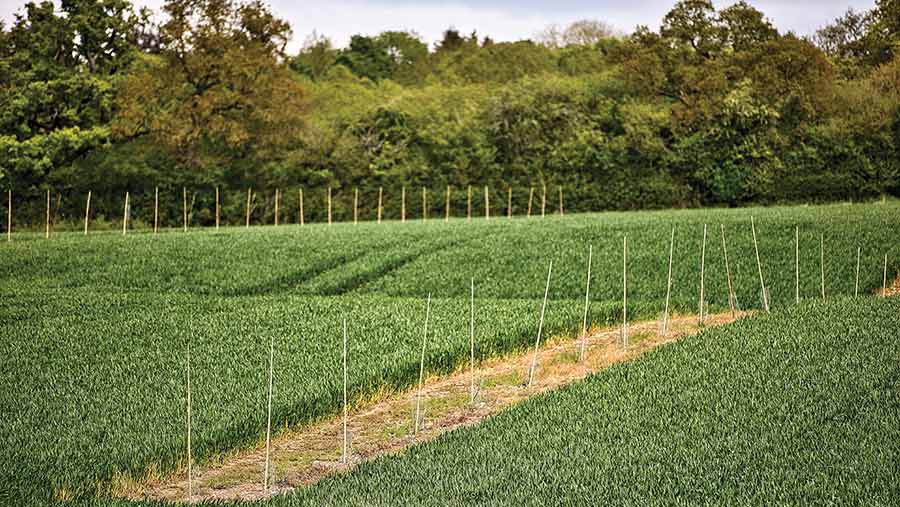
Strips planted with pear, apple and walnut trees in a winter wheat crop © Richard Stanton
As well as capturing carbon and improving soil structure, tree roots yield nutrients for the growing crop.
The long-term goal could see fruit harvested by the local community with the rest sold commercially.
Last year, some 1,700 people visited the farm for events like Leaf’s Open Farm Sunday.
Having become a Leaf demonstration farm last year, the farm is now undergoing Leaf Marque certification, explains Leaf Marque technical officer Lotte Wilson.
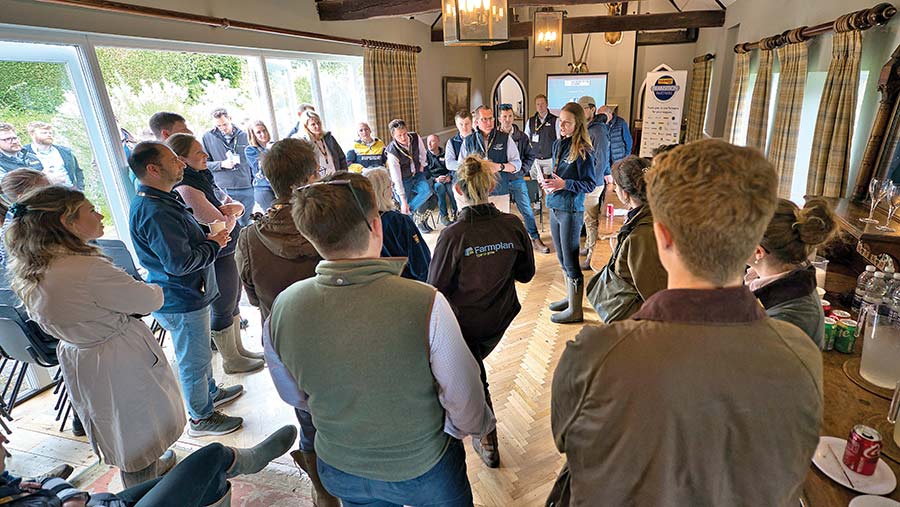
Leaf Marque technical officer Lotte Wilson explained the benefits of the programme © Richard Stanton
As a Leaf member, Newhouse Farm is able to benchmark its performance against more than 1,000 other farmers and growers.
It can also take part in knowledge exchange initiatives with 40 other demonstration farms.
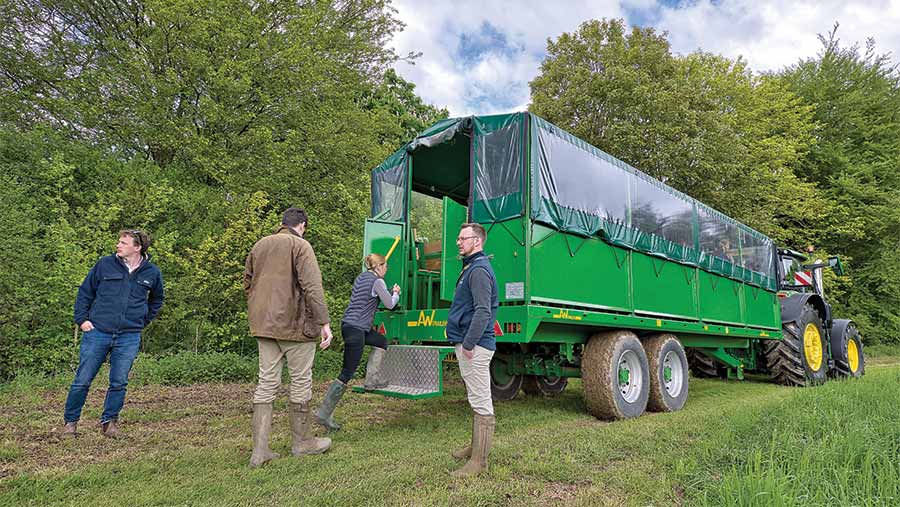
Visitors were able to travel around the 800ha farm in style © Richard Stanton
About Transition Farm Walks
The Transition Farm Walks bring together farmers and other supply chain members to see how progress is being made towards a more sustainable farming future.
For more details on the farm walks, see fwi.co.uk/transition
